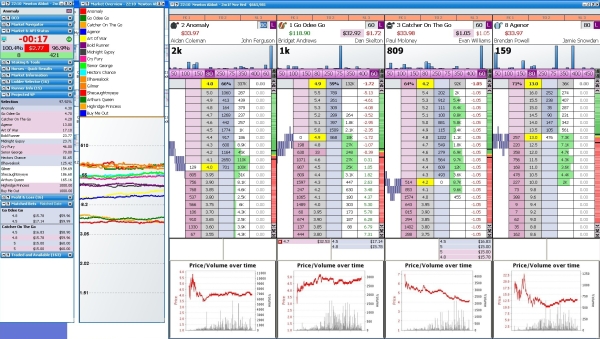SUNDAY, 30 AUGUST 2015
In 1994 I was still running in the pack along with other people of my age with whom I shared a broad socio-economic background. In my head I was already somewhat apart, but to all concerned and in terms of what was visible to everyone, I was still doing the same things many of my peers were doing.
In 1995 – twenty years ago this year – things changed. Many of my contemporaries started that year with a journey of more or less forty years that would end with their retirement, if they were to be blessed with a long life. That was the year when I split from the pack. And with that I am not saying my path was better or more special, and I make no judgement on my contemporaries who started with their forty-year career path. I am merely saying I have been on a different path since 1995.
Twenty years have since passed. Like many of my peers I also wonder: How am I doing?
Out of every hundred of my contemporaries who started in 1995 with a career (or with the first of perhaps four or five different careers) that will end in retirement in about two decades’ time, how many of them do as well as they thought they would? How many have actually pursued any of the dreams they wanted to pursue? How many of them have realised at least one or two of their dreams? How many have missed one chance after another? How many do much better than they ever thought they would?
It is reasonable to assume that everyone has made at least a few mistakes and displayed some poor judgement a number of times, and that at least a few people have seriously slipped up at least once. I think it is furthermore reasonable to assume that most people would like to make more money than is currently the case, and that a few may wish they could do more interesting work. Statistically it is also inevitable that a small percentage of this group are doing exceptionally well – they are making more money than they ever thought they would; their children are more beautiful and more intelligent than they ever thought they could produce, and they do work they find more fulfilling and more interesting than when they started out two decades ago.
To get back to my question, I think I am doing okay – in some areas much better than I thought I would; in other areas I am doing worse than I hoped would be the case. I have had a few slip-ups, and there have been a few times where I completely overestimated my abilities (or perhaps I simply did not know myself well enough, or I didn’t have a proper understanding of the challenge). I have so far led a pretty interesting life. I am learning more every day about things I have always been interested in. I am almost never bored. And I share my life with a strong-minded, kind-hearted woman and two black cats. I have no debt, and I have a little money in the bank.
On the other hand, 99% of my income currently comes from teaching English part-time in Taiwan, on a sometimes unpredictable schedule. And my income is only a fraction of what I need to take care of my elderly parents, so the responsibility mainly falls on the long-suffering shoulders of my older sister.
Twenty years after I started walking on a different path and at a different pace than many of my contemporaries I am not doing too badly. Truth be told though, a few people, myself included, are hoping I do a little better in the future.
______________________
